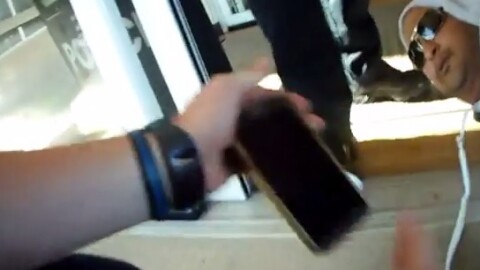After seven months of research, a committee appointed by Mayor Andrew Ginther has shared their recommendations for the policy and implementation of police worn body cameras.
But residents worry their plan will take too long to take effect.
According to committee recommendations, only first responders, about 1,500 officers, or three quarters of the Columbus Police force, would be assigned the body worn cameras.
It's estimated that this would cost about $8.5 million dollars and take two to three years to fully implement.
At the public hearing on Wednesday evening, Brian Estabrook, was one of several members of the audience who expressed concerns to city council that the city had waited long enough for this technology.
"A two to three year timeline is absolutely unacceptable," said Estabrooks. "The mayor is currently touring the city talking about how this is going to be implemented at the beginning of the year and it's not."
Committee chair, George Speaks, says officers will be trained and assigned the cameras in eight separate phases. This will give them time to work out any glitches that could arise.
Committee member Laura Baker-Morrish, chief prosecutor for the city of Columbus, says she understands why residents want the cameras now, but says it will take time to equip the stations with the fiber optic infrastructure necessary to download and store the videos.
"I understand their need to roll this out over time," Baker-Morrish said. "There's also a financial component. I mean that's expensive and they have to figure out if they have the money to do it."
Tammy Fourneir Alsaada from the People's Justice Project says they're not as concerned about when the cameras will become available.
The Ohio organization is in support of the cameras, but want city leaders to know that more is required in order to prevent possible instances of police brutality.
"Body cameras, we think that they can help, but we're well aware that in many cases across the country the cameras were turned off or the footage was destroyed," says Alsaada.
The People's Justice Project held a small rally outside City Hall during the public hearing. Among other demands, they want an independent investigation of recent police involved shootings of Tyre King and Henry Green.
"Many of these shootings have been on video," Alsaada said, referring to other instances of police involved shootings across the country. "And we still have not had an indictment."



